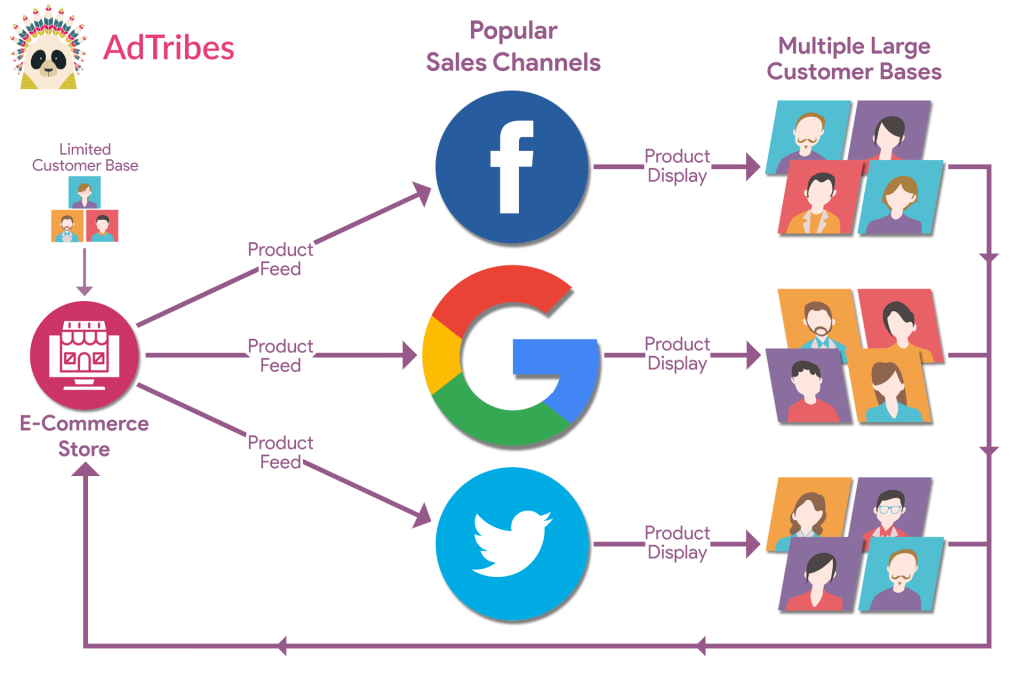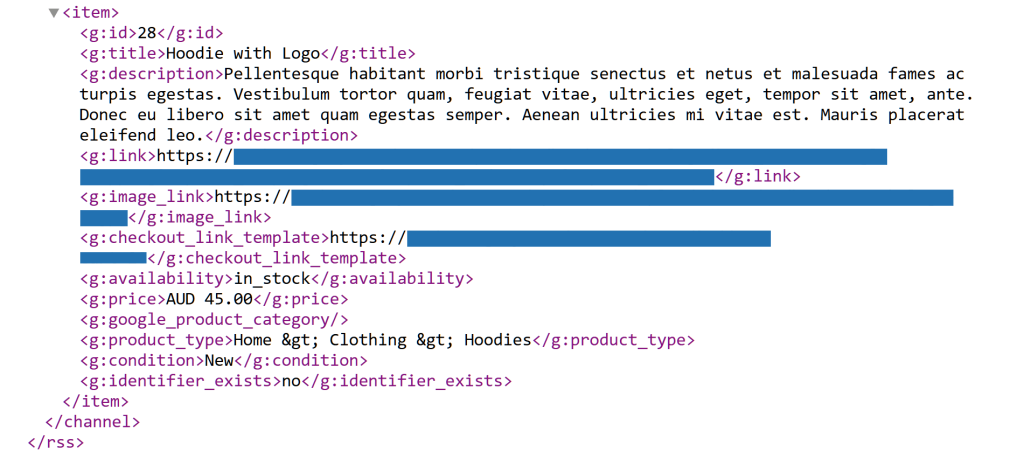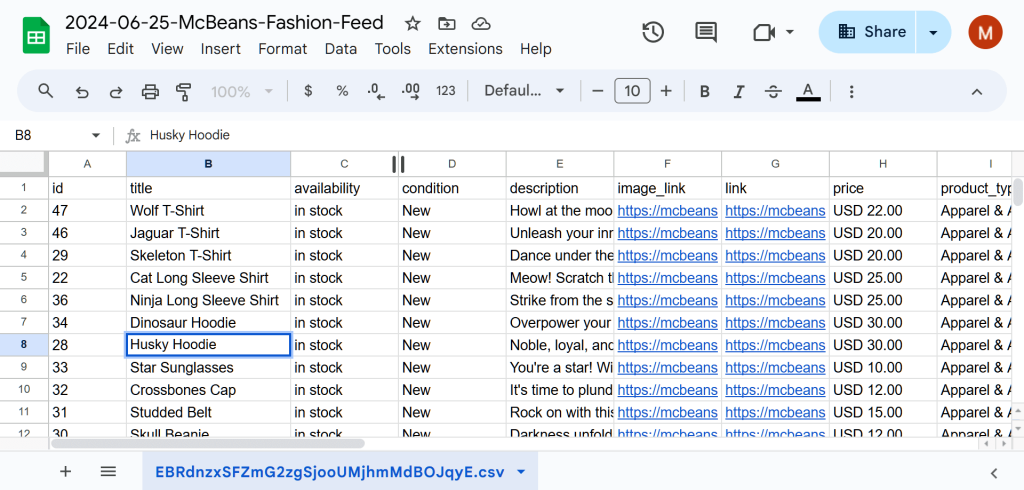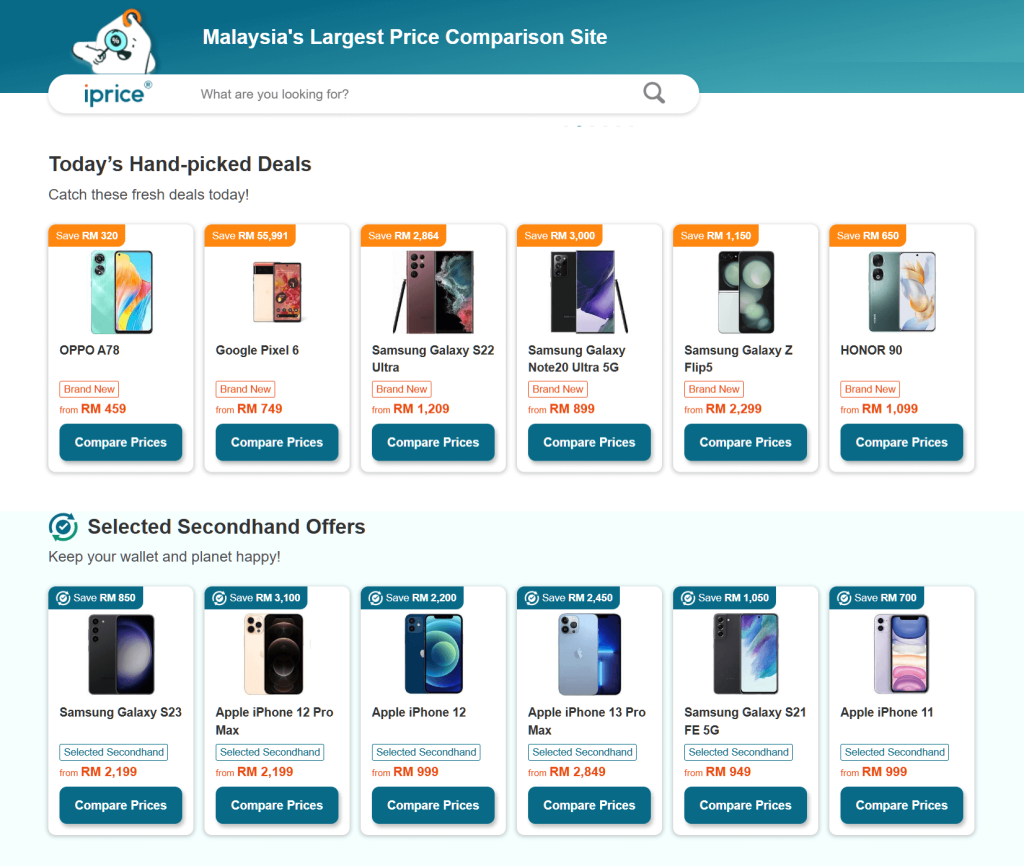
Welcome to our ultimate product feed example showcase, where we’ll guide you through everything you need to know about product feeds!
Whether you’re new to e-commerce or looking to refine your understanding, today’s article is designed to teach you the fundamentals of product feeds and why they’re essential for your online store’s success.
Furthermore, with over 100 product feed sample files available for download, you’ll have all the resources you need to explore different formats and sale channels including Google Shopping and Facebook.
So let’s dive in!
Table Of Contents
I. What Are Product Feeds?
Product feeds (a.k.a. product data feeds) are files containing an e-commerce business’ organized list of products and their various attributes, allowing each product to be featured, promoted, or compared through online sales channels.
A single product feed can store data on multiple thousands of offerings. This data can include product attributes such as:
- Product ID
- Title
- Description
- Link
- Image link
- Price
- Availability
Typically, these attributes are formatted in a way that sales channels can process and showcase with ease.
1. What makes product feeds valuable?
Let’s say you’re running an online store. You can create feeds containing information about your products. Then, you can submit these feeds to various sales channels such as Google Shopping, Bing Shopping, Twenga, and more.
Consequently, these channels can showcase your offerings to their enormous customer bases. Thus, product feeds can significantly boost your products’ visibility and reach, which in turn can enhance your traffic and sales.
2. In which formats can product data feeds be created?
Typically, you can create feeds in the following formats:
- XML (Extensible Markup Language)
- CSV (Comma-Separated Values)
- TXT (Text Files)
- TSV (Tab Separated Values)
Once you’ve generated a product feed, these file formats will contain your products’ essential details.
3. What do product data feeds look like?
The appearance of a feed depends on its file format.
Typically, file formats use product attributes to represent product data. Moreover, these attributes are organized to be easily interpreted and showcased by sales channels. This organization of attributes helps with data compatibility and presentation across different platforms.
Let’s take a quick look at the visual structure of product feeds.
i. XML
XMLs are a hierarchical, text-based format with tags.
ii. CSV
CSVs are a flat, text-based format with values separated by commas.
iii. TXT
TXTs are a simple, text-based format with data organized in plain text.
iv. TSV
TSVs are a flat, text-based format with values separated by tabs.
Furthermore, you can use certain software to open these files. For example, if you use a spreadsheet application such as Microsoft Excel or Google Sheets, a CSV file displays columns for each attribute and rows for each product:
As for the appearance of a product feed on a sales channel, it depends on the specific channel. However, feeds are typically displayed as product listings:
For more information on product feeds, check out our comprehensive guide, “What Is A Product Feed And How Do You Create One?“
II. Product Feed Example Showcase (100+ Downloadable Product Feed Samples!)
Many e-commerce platform owners are unfamiliar with product feeds. Thus, we created a showcase of downloadable product data feed example files for various networks like Google Shopping, Facebook, and more. This way, if you want to see what these files look like, you can download and examine them at any time.
To examine the 100+ product feed sample files we’ve prepared, visit the following link:
This will take you to a page where you can choose one of two ways to download the files:
1. Download all the files in a single zip file.
2. Download each file individually. For your convenience, we’ve categorized said files by sales channel and selected a target region for each channel.
Happy exploring!
Conclusion
By enabling you to showcase your offerings through popular sales channels such as Google Shopping and Facebook, product feeds empower you to boost your visibility, reach, traffic, and sales.
With the insights and sample files from this product feed example showcase, you now have a solid foundation to understand and utilize product feeds effectively!
To summarize, this article focused on:
Check out these product feed samples and apply what you’ve learned to enhance your e-commerce strategy and ensure your product data is optimized for success across various sales channels! And if you have any questions about product feeds, kindly let us know in the comments section!











